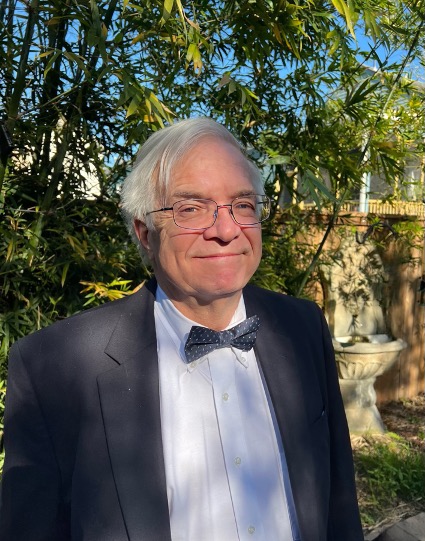2023 Distinguished Ethnobiologist: Dr. William Balée
 This year, the Society of Ethnobiology’s highest recognition of lifetime achievement, the Distinguished Ethnobiologist Award, has been awarded to Dr. William Balée. On behalf of the award committee, Bill, please accept our heartfelt congratulations and appreciation for your innumerous contributions to the field and Society!
This year, the Society of Ethnobiology’s highest recognition of lifetime achievement, the Distinguished Ethnobiologist Award, has been awarded to Dr. William Balée. On behalf of the award committee, Bill, please accept our heartfelt congratulations and appreciation for your innumerous contributions to the field and Society!
Bill’s nomination letter mentioned that he was a key player in formalizing the fundamental interdisciplinary nature of the modern field of ethnobiology. He has also been a key player in framing and nurturing the historical ecology research program. He was praised for reorienting anthropological and archaeological studies of Amazonia, from being focused on associating environmental constraints to the complexity of local societies, towards a constructionist approach that recognizes people as agents who manage and (re)construct landscapes. His work has helped introduce a new paradigm of Amazonia as an anthropogenic landscape that was densely populated.
Additionally, Bill’s service to the Society of Ethnobiology has been tireless, including serving as editor of the Journal of Ethnobiology, organizing conferences, and serving as President-elect and President, to name just a few. In each of these roles, he advanced the Society in so many ways—fostering integration among many generations of ethnobiology professionals and students and modelling the constructive exchange of ideas about alternative points of view.
Bill is an admired and cherished leader within our community. Throughout his career, he has demonstrated the ideal of sustained scholarly excellence and leadership, with humble dedication to supporting ethnobiology students both at his institution and in the Society. He seeks to bring members of our community with him as he advances the field so they also may become excellent scholars who contribute to the wonderful diversity of ethnobiology that is sustained by incredible collegiate unity between ethnobiologists. He exemplifies the highest ideals for our academic and community leaders.
Since 1998, Bill has been Professor of Anthropology at Tulane University, where he has advised many doctoral students and served in diverse capacities in service to his university and academic fields. Balée has been at the forefront of ethnobiological and ethnographic innovation since his time as a Research Fellow at the Institute of Economic Botany, New York Botanical Garden (1984–1988) and as an Associate Researcher at the Museu Paraense Emílio Goeldi in Belém, Brazil (1988–1991). Interacting with researchers of diverse specialties, he demonstrates and advocates for the vitality of a four-field approach to anthropology. His revolutionary intellectual synthesis had its roots in his intensive and lengthy fieldwork undertaken principally among the Tupi-Guarani speaking Ka’apor, which resulted in his now classic 1994 book Footprints of the Forest: Ka'apor Ethnobotany—The Historical Ecology of Plant Utilization by an Amazonian People (winner of Mary W. Klinger Award from the Society for Economic Botany). Balée continues to conduct research with the Ka'apor, whose language he fluently speaks. The implications of his work go far beyond academia, stimulating debates and public mobilization in defense of Indigenous territories and traditional knowledge as immemorial domains worthy of appropriate conservation legislation.
James R. Welch
Graduate Ethnobiology Research Fellowships Coordinator
